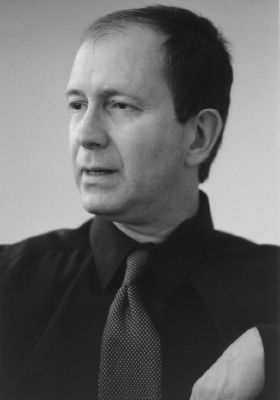|

Oriental Spice
'A Celebration of Israeli Music',
reviewed by MALCOLM MILLER
'A Celebration of Israeli Music' at the Duke's Hall of the Royal Academy of Music, presented by Spiro Ark, was a special occasion that attracted a large audience to enjoy a variety of contemporary music including three UK premières. It was introduced by the patron of the day, Lillian Hochhauser FRCM, who highlighted the great achievements in music and arts during Israel's sixty year history, and the value of organisation such as Spiro Ark, and their music division Tzavta, directed by the cellist Sagi Hartov, who seek to promote these gifts for the benefit of a wide audience. The date of the 'Celebration of Israeli Music', Sunday 4 November 2007, was poignantly apt, marking, as it did, the twelfth anniversary of the assassination of Yitzhak Rabin, and indeed as a centrepiece was Yizkor ('Memorial') by Oedoen Partos, one of the four major Israeli composers featured in the concert, which spanned from the pioneer generation who came to Palestine in the 1930s including Ben-Haim to the current generation of Menachem Wiesenberg and Michael Wolpe.

Menachem Wiesenberg
|
A potent overture was provided by the She'koyokh Klezmer Ensemble who gave an arresting performance of two contrasting 'klezmer' pieces, the first slow and meditative the second dance like and fizzing. The clarinettist had a beautifully vocal tone, in the true klezmer style, enhanced by violin, and supported by accordion and double bass. With its supple communicative approach, She'koyokh set an upbeat tone for the rest of the concert. The first main work was the UK première of the Octet, Homage to Mendelssohn, by Menachem Wiesenberg. Wiesenberg is one of the most versatile composers and arrangers in Israel, recipient of the 1998 Prime Minister's Award and keen to combine Arabic instruments with Western ensembles, as in his Concertino for Oud and Orchestra. His Octet uses the same arrangement of two quartets as Mendelssohn's famous Octet (and is thus an ideal sister piece to that most popular of chamber works). Wiesenberg reinterpreted several of the motifs of Mendelssohn's Octet in new and radical new ways. The single movement unfolds as a type of elegy, the ever changing textures matched by an expressively fluid discourse. Idiomatically suited to the medium, each string quartet works both as a group and in combinations, with changing dialogues, dovetailed exchanges, a great variety of articulation and dynamics, and much appeal to its variegated pastel shading. The composer was present to acknowledge the enthusiastic reception to the work.
Continue >>
Copyright © 10 December 2007
Malcolm Miller, London UK

|

